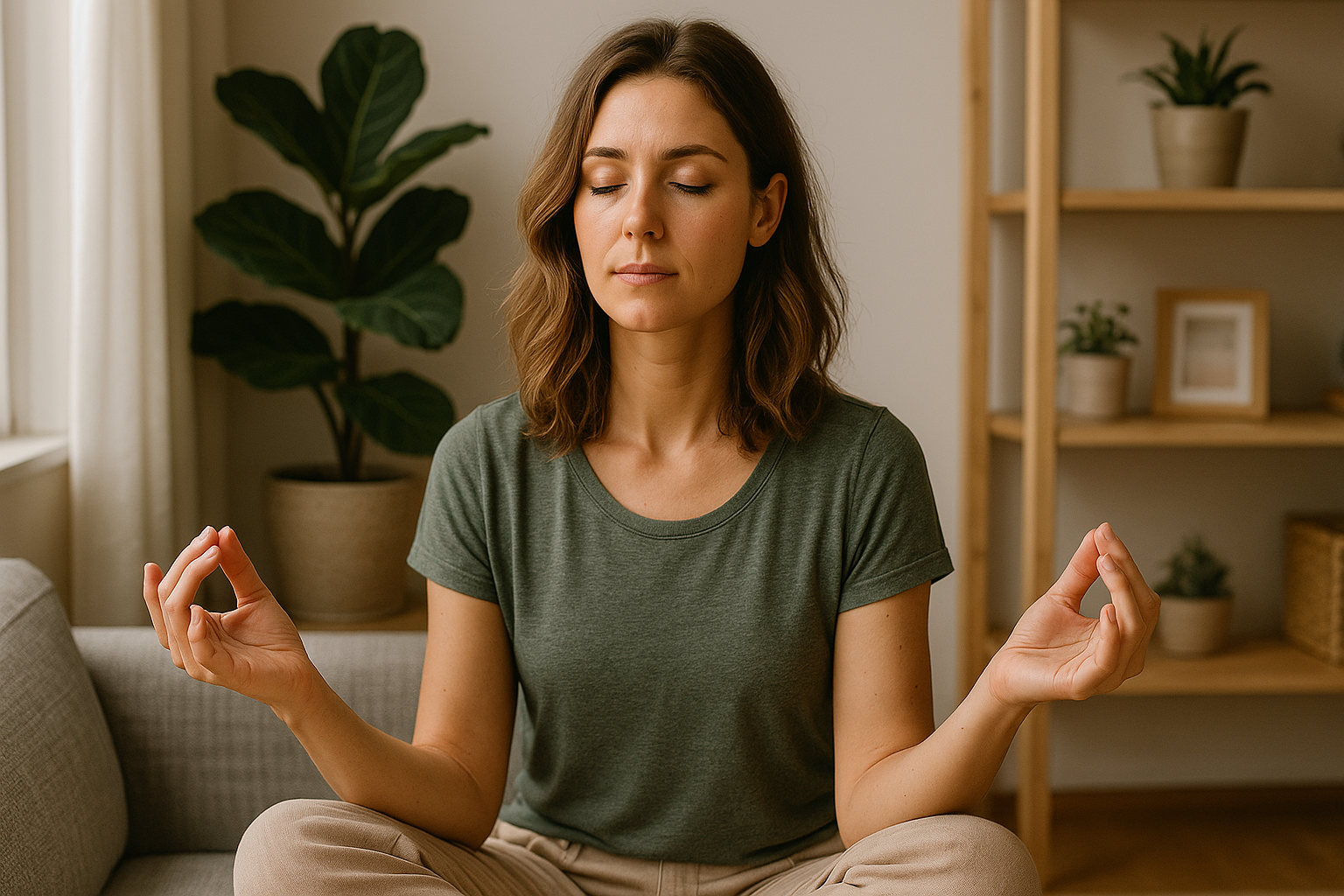In the midst of modern life’s demands, finding emotional balance is not a luxury — it’s a necessity. Emotional balance refers to the ability to manage your feelings and reactions in a way that promotes mental clarity, healthy relationships, and overall well-being. It’s about remaining centered during stressful moments, staying grounded during conflict, and maintaining perspective when life feels overwhelming. When you’re emotionally balanced, you’re not free from difficult emotions — but you’re better equipped to face them with resilience and confidence.
Understanding Emotional Balance
Emotional balance doesn’t mean you’re always calm or happy. It means you can experience a full range of emotions without becoming overwhelmed or stuck in negativity. A balanced emotional state allows you to respond instead of react, making it easier to navigate work challenges, personal relationships, and internal pressures. This level of self-regulation is key for long-term mental and physical health.
Why Emotional Balance Matters
When emotions are out of control — whether it’s chronic stress, anxiety, anger, or sadness — the body and mind suffer. Unregulated emotions can lead to high cortisol levels, weakened immune function, insomnia, and even cardiovascular problems. On the mental side, emotional imbalance can cause impulsive decisions, burnout, strained relationships, and a loss of focus. On the flip side, people with greater emotional balance tend to enjoy stronger social connections, better health, and improved performance in both personal and professional areas.
Identify Your Emotional Triggers
A powerful step toward emotional balance is self-awareness. Take time to notice which situations or people tend to spark intense emotions in you. These could be recurring patterns, such as feeling defensive when receiving criticism or anxious before social events. Keeping a journal can help identify these emotional triggers. Once you recognize your patterns, you can begin to shift your responses and choose healthier ways to cope.
Create Space Between Stimulus and Response
Instead of reacting immediately when something upsets you, practice pausing. Take a breath, count to five, or excuse yourself from the situation if needed. This short pause allows the rational part of your brain to kick in and helps you respond with intention rather than emotion. Over time, this habit strengthens your ability to handle conflict and unexpected stress more gracefully.
Incorporate Mindfulness into Your Routine
Mindfulness — the practice of being fully present in the moment — is one of the most effective tools for emotional regulation. It helps you become aware of your thoughts without judgment, which reduces emotional reactivity. Even just five to ten minutes a day of mindful breathing, meditation, or body scans can make a meaningful difference. You can also practice mindfulness during everyday activities like eating, walking, or brushing your teeth. The goal is to train your attention to stay in the now instead of spiraling into past regrets or future worries.
Set Emotional Boundaries
Boundaries protect your mental and emotional energy. Learning to say no, limiting your time with draining people, and being honest about your emotional capacity are essential parts of self-care. Boundaries are not selfish — they are healthy indicators of what you are and are not willing to tolerate. Communicate your needs clearly and respectfully, and honor your own limits consistently.
Prioritize Self-Compassion
Often, the harshest emotional turmoil comes not from others, but from our inner critic. Practicing self-compassion means treating yourself with the same kindness you’d offer a friend. Acknowledge your mistakes without judgment, recognize your humanity, and speak to yourself with encouragement. This reduces shame, increases emotional resilience, and supports long-term balance.
Regulate Through Healthy Habits
Your lifestyle has a direct impact on emotional health. Regular sleep, physical activity, balanced nutrition, and hydration all influence your mood and emotional stability. For example, physical activity helps release endorphins that elevate your mood, while lack of sleep can make you more irritable and reactive. Maintaining healthy routines supports the foundation you need for balanced emotions.
Create a Support Network
You don’t have to go through emotional challenges alone. Build connections with people who offer empathy, understanding, and constructive feedback. Whether it’s a friend, coach, therapist, or support group, having someone to talk to creates emotional relief and offers perspective. Sharing your struggles can be an act of courage — and a step toward healing and regulation.
Practice Emotional Expression
Bottling up emotions often leads to internal tension and long-term stress. Allow yourself to express your feelings in safe, healthy ways — whether through writing, art, movement, or conversation. Crying when you need to, laughing fully, or letting yourself feel frustration in a constructive space can prevent emotional buildup and promote balance.
Final Reflection: A Balanced Life Begins Inside
Emotional balance is not a destination — it’s an ongoing practice. Life will always bring emotional highs and lows, but learning how to navigate those moments with awareness, boundaries, and care gives you power. When you are emotionally centered, you can show up more fully in your relationships, make better decisions, and face challenges with strength. The more you nurture this balance, the more peaceful, intentional, and joyful your everyday life becomes.
